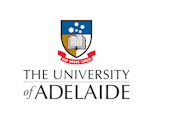Research Overview
In 2009, the Human Sensorimotor Plasticity group headed by Associate Professor Mike Ridding and the Developmental Neuromotor Physiology group headed by Dr Julia Pitcher joined the Robinson Institute and formed the Neuromotor Plasticity and Development (NeuroPAD) research group. Mike is internationally-renowned for his pioneering work in human brain plasticity induction, and Julia is attracting increasing recognition for her novel use of neurophysiologic techniques to unravel the links between motor and cognitive development in preterm children. The research interests of the group encompass neuromotor development and neuroplasticity across the human lifespan, from prenatal and early postnatal factors influencing motor development, through to therapeutic uses of induced neuroplasticity in ageing and neuropathological disorders such as stroke and the dystonias. The aim of the group's research is to inform and develop therapeutic interventions to develop, maintain and rehabilitate human motor function. NeuroPAD collaborates widely with clinicians and scientists from a range of disciplines including motor control neuroscientists, neurologists, neonatologists, obstetricians, psychologists, paediatricians, anaesthetists, physiotherapists and clinical epidemiologists. NeuroPAD is housed in four new purpose-built laboratories in the Robinson Research Institute next to the Women's and Children's Hospital, and is fully equipped with state of the art transcranial magnetic brain stimulators with neuronavigation, high-density EEG and human neurophysiological recording systems.
Current Research Projects
My current research interests lie in the field of motor cortical plasticity or the capacity of the motor cortex to reorganise its connections with experience. Plasticity is important for learning and recovery from brain injury. I employ non-invasive brain stimulation techniques (including transcranial magnetic stimulation) to experimentally induce plasticity in the motor cortex of human subjects. While these approaches have considerable potential for treatment of neurological conditions their efficacy is, at present, limited due to high response variability. Our current research projects include:
- The role of neuroplasticity in cognitive impairment
- Characterising changes in cortical plasticity after stroke
- Physical activity and brain health
- Neuroplasticity and the development of chronic pain
- Development of novel stimulation paradigms to induce lasting neuroplasticity
Experience
-
–presentProfessor, University of Adelaide
- Adelaide, Australia
- Website
- Article Feed
- Joined


